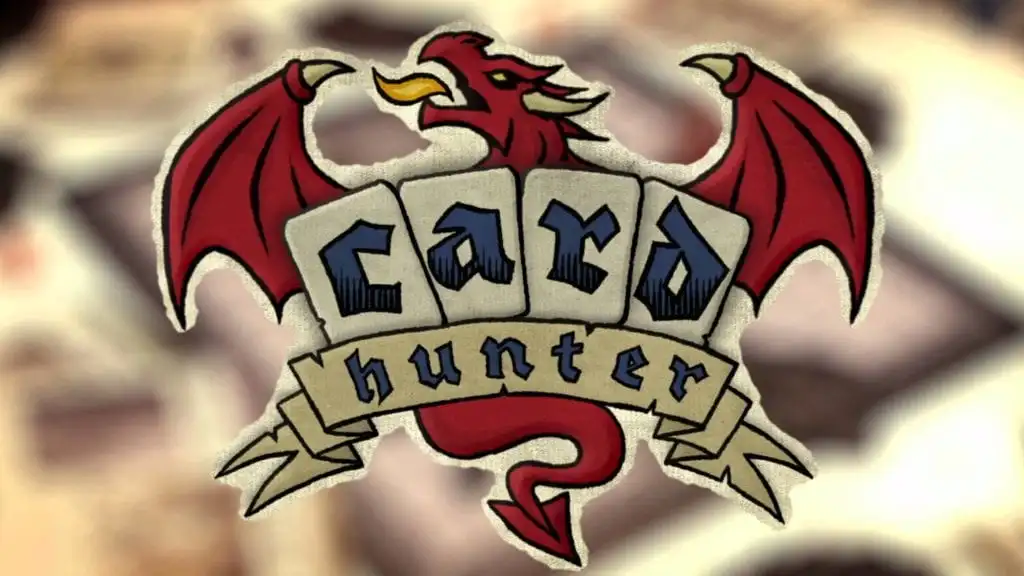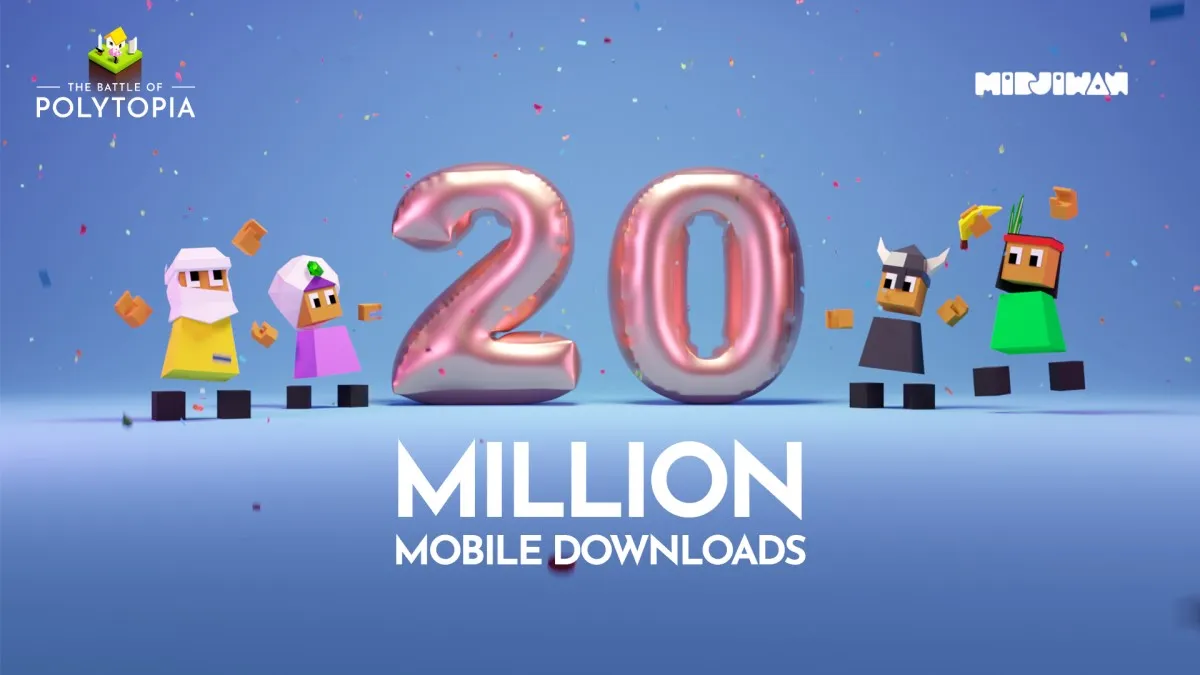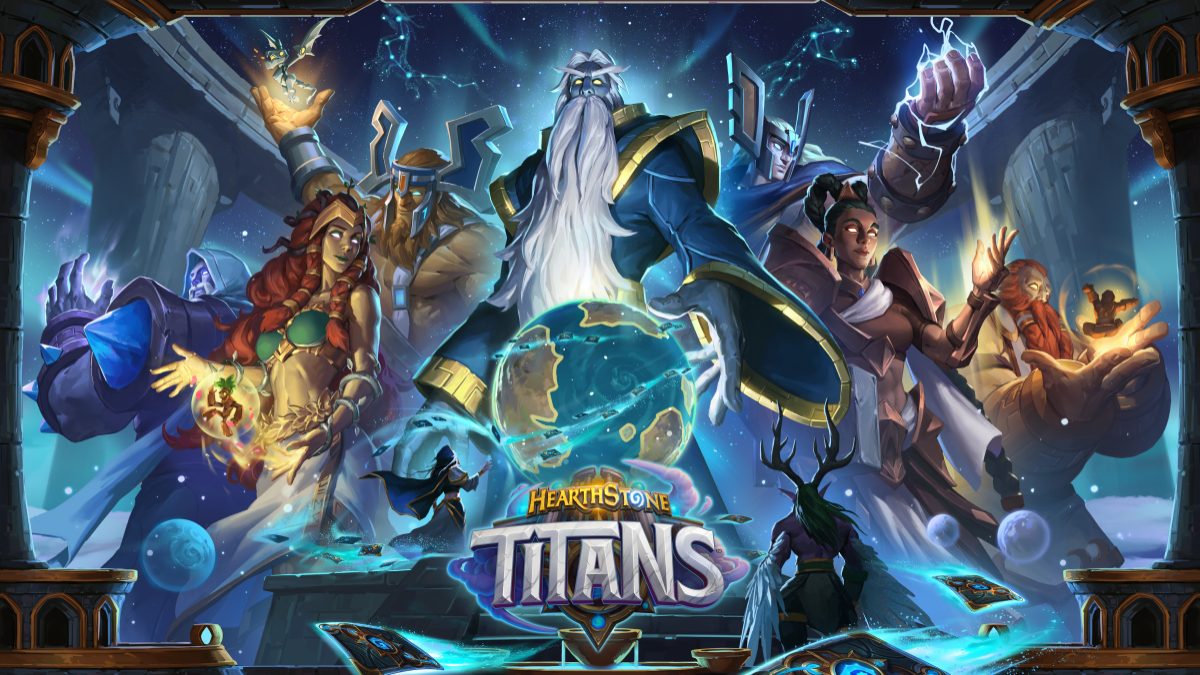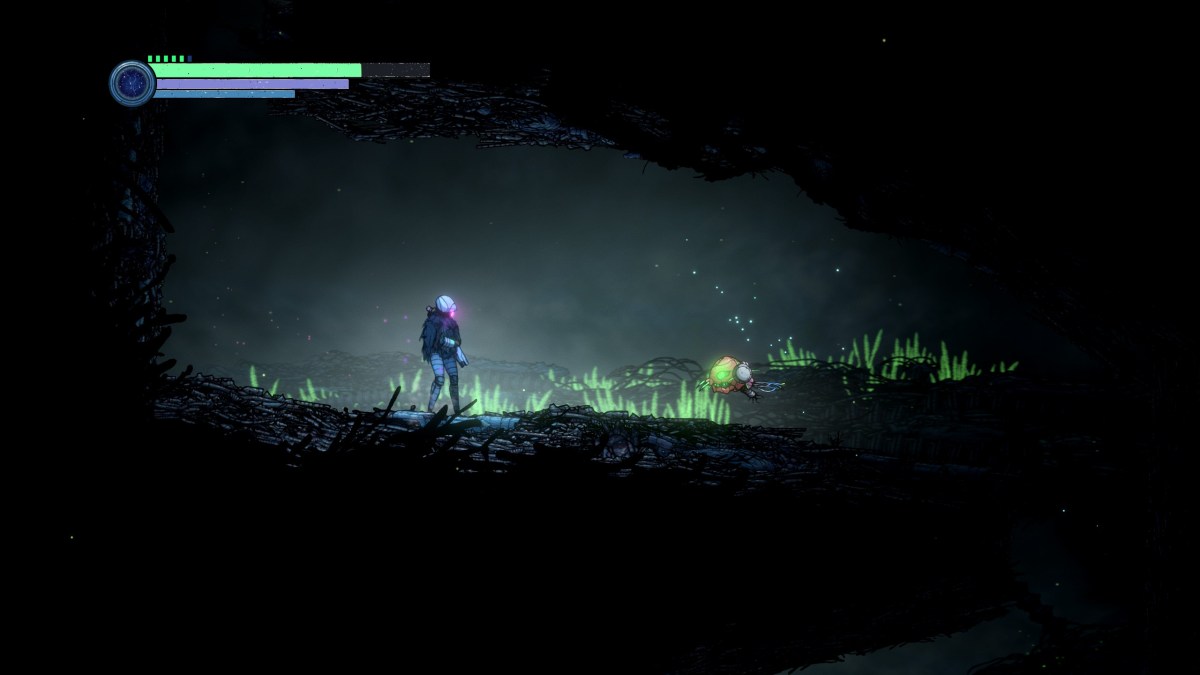TM: With that in mind, then – are you now relieved to see this sort of thing is taking off, or are you terrified by the competition?
JC: No, I’m never terrified by competition. I think I’d be terrified if I thought that we were doing the same thing as everyone else, but I don’t think there’s anyone else really doing anything much like Card Hunter. A lot of the things that I’ve been talking about are very unique to Card Hunter; I don’t think there’s anything exactly in this space. So I’m pleased that people are interested in card games and board games, because I think there’s room for all kinds of different products in that space. It’s a very big space.
I think that you need to be a little bit worried if you’re making a modern-day first-person shooter, because there are so many of them, and you’ve got to wonder why people would play your one instead of Call of Duty or Medal of Honor or whatever else. I think if there were other fantasy-themed, board game-lookalike, collectible card games, then perhaps we should be worried. But I’m not too worried right now.

It’s really not intentional, but I’ve only got so many, and Paul’s threatened to fire me if I go back to using pictures of kittens.
TM: [Laughs] Considering how difficult it is to actually describe the game to begin with, I don’t think you need to worry about that.
JC: Right! Obviously, if the game’s successful you’ll probably see some other people try to jump on the bandwagon, but I think they’ll probably wait and see if it’s successful first. [Laughs] But it’s so obscure I don’t think anyone else is going to think of the same idea.
TM: I wrote a really lengthy piece about a year ago, looking at how most games – to really be successful and to stand out – they do need to have some aspect of originality. If they’re just hopping onto a bandwagon and doing something that’s almost exactly the same as what someone else has already done and made popular… why would a consumer want to play your game instead of theirs?
JC: Yeah. We’d always been very clear about that when we were running Irrational, because the very first task we were given was to make a first-person shooter for a fairly small amount of money, at a time when there was already a fair amount of money going into that genre. That game ended up being System Shock 2, and we were being asked to compete with games like Half-Life and so on.

Oh good. An excuse to use System Shock 2 pictures instead!
We didn’t have anywhere near the budget or the expertise – not that it was our first game, but we knew we couldn’t go head-to-head with things like Half-Life and outperform them in terms of better graphics or better weapon feel, or whatever. So we very clearly said that we needed to make a different kind of game, and we need to include things like a role-playing system, and things that are completely different to what other people are trying to do in this space. And that was always our philosophy, was to not try to compete head-to-head with people who have more expertise or more money, or even just first-mover advantage in that space. I think that once you’re the dominant player in that space you can just sit there.
The last thing I would do is say “I’m going to build a Dota clone, and I’m going to outcompete League of Legends and Dota 2.” I mean, how are you going to do that? [Laughs] Some people might think “Well, here’s three things I don’t like about League of Legends, and I’m going to fix them and make my League of Legends game, and it’ll be like League of Legends only better.” But people don’t care about those three things, that’s the problem. They’re never going to leave their game to play your game because it’s 20% better – even if it is, which it probably isn’t! But if you can come up with something that gives them a very different experience, then they may be tempted to play your game. Or at least that’s the way we hope it works.
TM: As I said, pretty much every single one of the games you’ve worked on has been at the very least a cult hit, so yes, I fully agree. I’m not quite sure how many publishers agree, but…
JC: No, publishers tend to think the other way, which is “If there’s no existing audience for this type of game then I have no way of knowing what that audience will be, therefore I’m not prepared to invest in it.” I’m sympathetic to that point of view, and that’s kind of what I was saying – when I set out making this game I was a little bit embarrassed, because it appeared to be a… well, it still is a very risky idea, because it’s not clear how big the audience for this kind of game is.

AND ANOTHER ONE!
TM: This is an aside, but since we mentioned it – are you happy to see System Shock 2 pop up on GOG and Steam? I assume you’re proud of that game, and must be reasonably pleased that people can now actually play it again without having to go through circuitous routes like eBay.
JC: Of course, of course. Couldn’t be happier. The more people who play that, the better. It’s kind of like a cult movie, in that it got released and some people played it and liked it, and then over the years it’s become more and more famous. In the period shortly after its release, hardly anyone had heard of it, and I’m very, very happy that people have picked it up. I actually intend to go back and play through it again myself soon, because it’s been long enough that I’ve actually forgotten all so much stuff!
I still think we did a lot of great stuff with it. There are definitely some things in it that make me cringe when I look at them, but overall I’m still very proud of it.
TM: I think that’s true of anyone who creates anything – you can always see the flaws in it, even if nobody else notices.
JC: Yeeeeeah, but some of the flaws in that game are pretty noticeable! [Laughs] We did rush a bunch of bits of it. Like the cutscenes, for example.
TM: Even now, the weapon degradation is still…
JC: A bit contentious? Yeah…

I’m so glad we digressed into System Shock 2. It’s made my life much easier.
TM: But we’re supposed to be talking about Card Hunter, so: why did you decide to go the free-to-play route?
JC: I think it’s very hard to get a new IP off the ground, especially if you’re a new company and you want to charge people up-front to look at it. That’s really the end of my thinking, there. I knew that I was going to be launching this product with a business that no-one had ever heard of, and it’s not like it’s a sequel or there’s anything else to latch onto. A very small number of people may have heard of me and know that I worked on those games before, but those people aren’t necessarily interested in a turn-based card game. So I knew I’d have a lot of trouble just getting people to play the game, and the big advantage of free-to-play is that you’ve really lowered the barrier to getting in for the first time.
TM: I’m not going to ask about how you’re going financially, but I do want to ask if you considered going to Kickstarter once that started —

But now I’m doomed.
JC: Kickstarter wasn’t really a thing when we started this. We started this almost three years ago, and Kickstarter’s really taken off in the last couple of years; I didn’t even hear about Kickstarter until halfway through this thing. I think it could’ve been a great way to fund this.
TM: Yes, but even then – once Kickstarter started to take off with Double Fine’s adventure and everything that followed thereafter, did you consider sticking it on Kickstarter to get some extra cash to make the game bigger?
JC: We did, but… we were too busy making the game. We kept thinking about it, and we were thinking about it very recently too, but it just sort of… we were already so far down the road. There’s still a possibility that we might Kickstart something if we decide we need to add a lot of content to the game, or spin off something, or take it in a different direction. Kickstarter’s perfect for these kind of projects; it’s just a timing problem, really.
TM: How are you planning on expanding on Card Hunter? I’m assuming that once the game is out of beta and it’s done and open to everybody, that you’ll continually add in more adventures, heroes, and items. Have you started to think about this at all?

Uh oh. I think this my last Card Hunter screenshot.
JC: Yeah. We’re planning to expand the game “vertically”, in terms of levels. Right now you go up to about level 18, and we’ve plotted out more than double that in terms of power levels in the game. Then of course we’d like to expand the game horizontally, too. The class system is set up to be very expandable, so in terms of adding completely new classes… well, one of the obvious tropes that’s missing is the Thief/Rogue-type class, and we have a bunch of mechanics that we’ve reserved for that class. And then also, we could expand the number of races in the game – you can play an elf, a dwarf, and a human, but we can definitely push that out.
Class in Card Hunter is quite a flexible concept. The most important thing about a class is what kind of equipment slots it has; Warriors have some weapon slots and heavy armour slots, and Wizards have slots for a staff and robes and so on. That means we have a lot of opportunity to create sub-classes and hybrid classes. An Eldritch Warrior could have one sword slot and one staff slot, and whatever else. And, of course, we can add more modules. The whole game is designed around a module adventure system, and we already have some of those in development.
TM: We’d better start wrapping up, so a last few questions. First: how long are you anticipating the beta’s going to run, and when are you looking to push this out live?

I’m hoping that this pair is sufficiently cute that Paul won’t actually fire me.
JC: I think the next step in the beta is open beta – that’s certainly coming up, but we’re not quite there yet – and then live after that. It’s very hard to pin down, exactly, the difference between live and open beta! It’s just a state of mind, really – “Well, we think the game’s bug-free enough now that we’re going to call it live.” I certainly hope to get there in the next two or three months, but I’m not sure exactly when it’d be.
I think we’re doing pretty well on the bugs. We have increasingly less reported all the time, which is good, because we have even more people playing the game. So we’re definitely heading towards that, but we have the luxury of being able to drive it very much from our point of view instead of “Oh my God, we have to hit this date.” This has been my experience with all other games I’ve worked on – “We’re shipping on September 1”, and in theory you’re supposed to have closed down all the bugs in a certain priority by that date, but of course there are always some left and the solution is always “Well, they’re getting closed even though they’re not fixed!”
TM: Second: are you regretting naming it Card Hunter at all? I know that when I previewed it, there were a few comments from people essentially saying “Normally I would’ve ignored a game called Card Hunter and assumed it was just another CCG, but I’ve read the preview, I’ve tried it out, and it’s fantastic!”
JC: Well… names are tough. What else could we have called it? [Laughs] The standard thing I guess would’ve been to invent some sort of fantasy name, like The Kingdom of Zorgalax, or something…
TM: But then you hit another problem there, immediately.

This one’s actually begging Paul not to fire me. And begging you to play Card Hunter. Go sign up for the beta, you rotters.
JC: Right! You can go too far one way or too far the other. A lot of games I’ve worked on, you kind of get stuck with a name because it’s a working title.
I don’t know. I picked Card Hunter because I wanted it to be descriptive, and again, because I figured people didn’t know the game so they’d at least get some idea what it’s about – and it’s a game about collecting cards, fundamentally. So I don’t know. It’s possible I made a mistake there, but it’s probably too late to change it now! [Laughs]
TM: Yeah, but going based on everything else you’ve done historically, the worst-case scenario is that Card Hunter is going to wind up snowballing as time goes on and word of mouth spreads.
JC: I hope so! I think it’s a little early to tell, but on the other hand, people seem to really like it. We haven’t had a lot of negative feedback from the people who’ve tried it.

Two cat pictures, and we’re pretty much at the end of the interview. Time for me to play this card before Paul notices anything.
TM: Finally, then, are there any messages you want to put out there both to people who may not have played the game, and to those who are currently experiencing the joys of Card Hunter?
JC: Well, for people that haven’t played it, I’d obviously highly encourage you to go and take a look at our website. You can sign up for the closed beta, which is still ongoing. You’ll get in pretty quickly now, as we had a big backlog for many months and people were getting frustrated with how long it was taking us to get them into the game, but the beta list is very short at the moment. I think you’ll probably get in within a week of signing up; maybe even just a few days. If you don’t like that idea, we’ll be in open beta pretty soon, and even if you just put your name in you’ll get on our mailing list.
For people in the game, we’re continuing to work on and add features and refine the game. One interesting thing about the way we’re running the beta is that we’re going to reset everybody’s progress when we go into open beta, and that’ll probably be the last time we’ll do it. But if you like the game and you buy some of the in-game currency – which we call Pizza – you’ll be able to spend that during the beta, and then when we do that reset, we’ll re-credit it all back to your account. So beta’s an interesting time where you can play around with that currency and see what you think is worth buying, confident that you’ll get it all refunded and ready to spend again when we go into the next phase.
TM: Thank you very much for your time!
It sounds like the open beta’s coming soon, but we’d strongly recommend you sign up for the closed beta and have a look now. You can do so easily enough by heading over to the Card Hunter website.








Published: Jul 18, 2013 10:56 pm